Sergeant Stubby — heroic dog of the First World War
The name of the brave fellow in the photo is Sergeant Stubby. This sturdy guy is not just a dog, but a military man who has earned many regalia. His story began in 1917, when a stray puppy wandering near the Yale campus was picked up by a man named J. Robert Conroy, who later became a private in the American Army.
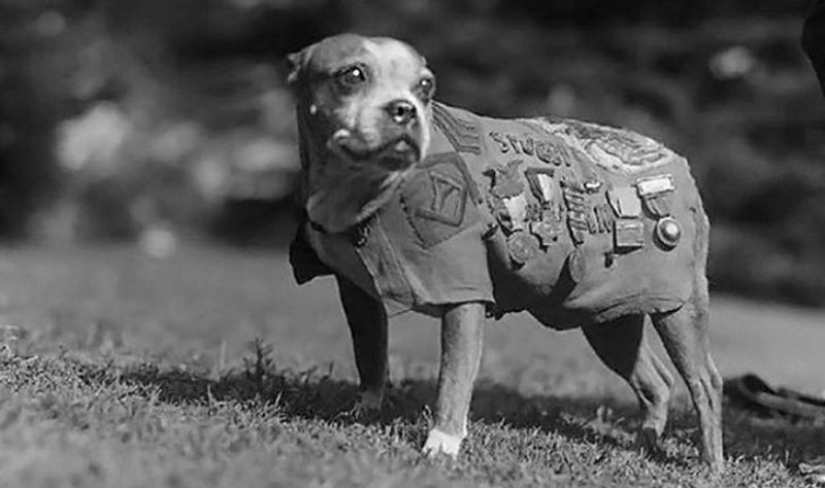
A dog named Stubby (meaning "shorty") during the First World War became the mascot of Conroy's squadron, which was part of the 102nd Infantry of the 26th Yankee Division.

The four-legged "son of the regiment" coped with his position perfectly, easily raising the morale of the soldiers. During the drill, the dog flaunted next to the owner, striking the audience with a practiced military salute. There was only one problem with the common pet — the presence of dogs in the ranks of the army was not allowed. What is described here sounds like a real movie story, but all this is the real story of baby Stubby.
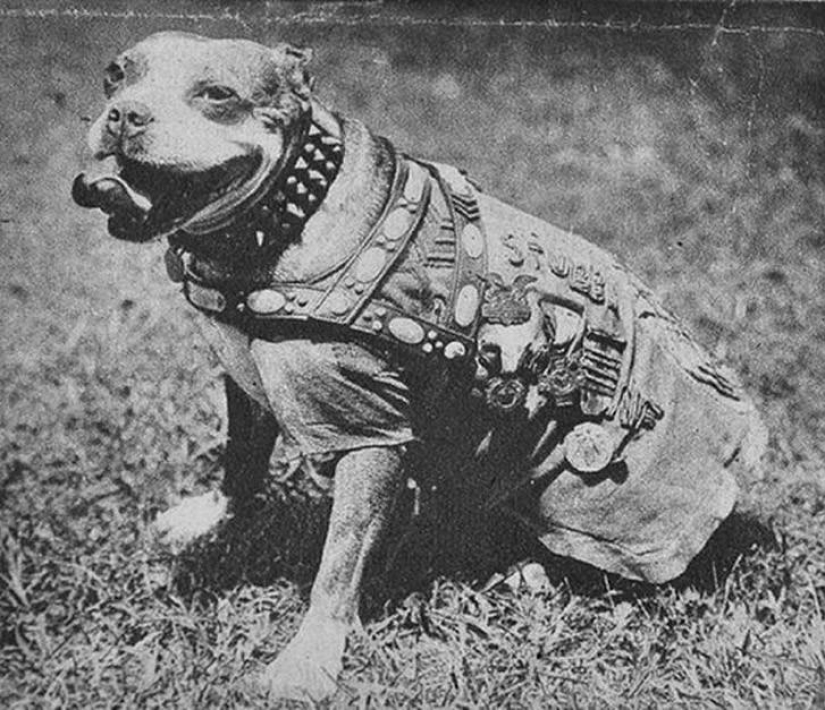
When it was time for the military unit of the dog's owner to go to Europe to participate in hostilities, Stubby was secretly brought aboard a warship. The commander of the ship did not like the fact of such "smuggling", but he immediately changed his mind when he saw the patriotic "military greeting" performed by Stubby.
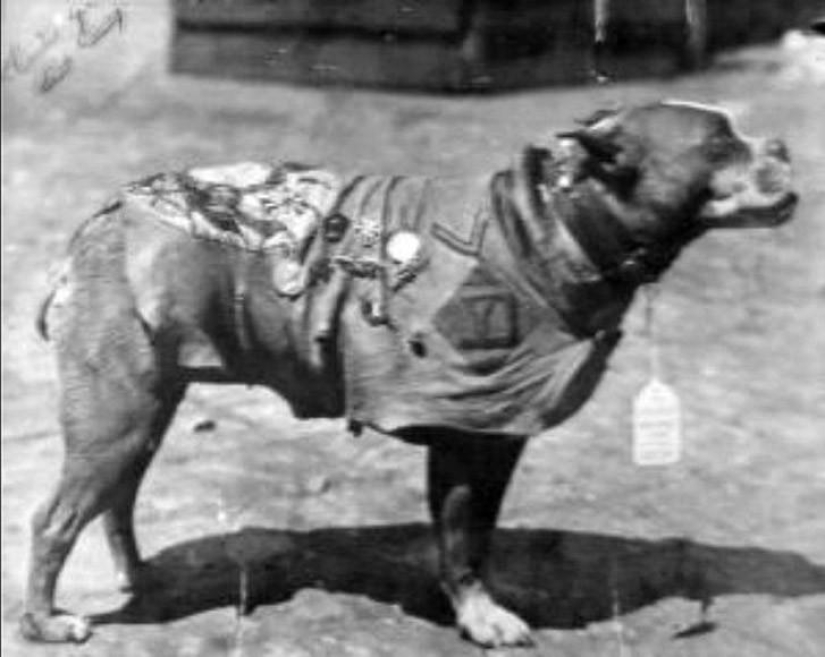
Since then, the dog has always accompanied the 102nd Battalion on the front line. Initially, Stubby's role was only to provide moral support to the soldiers, but over time he turned out to be a real savior of many human lives.
According to sources, this photo shows exactly the 102nd battalion. It is quite difficult to unequivocally assert the truth of this statement, however, the outlines of a dog resembling the silhouette of Stubby differ on the bags with gas masks of each military man. But it was this dog that was the mascot of the unit.
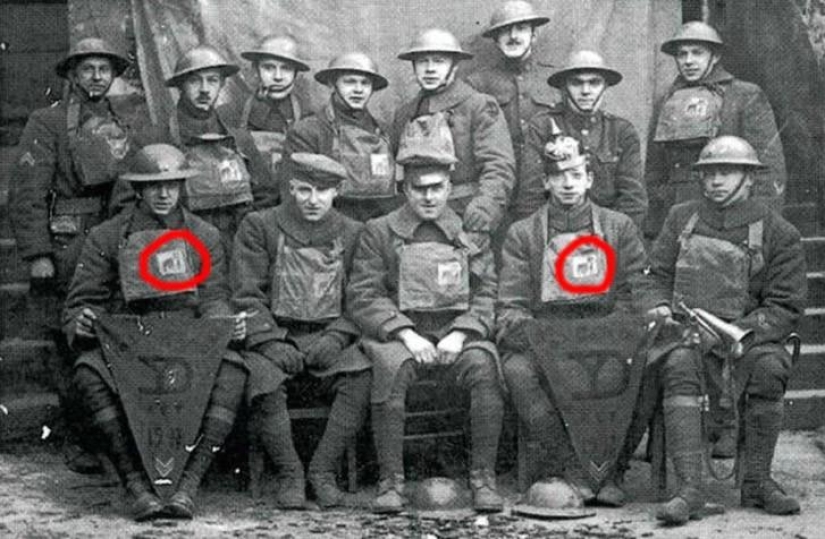
At the very beginning of his service, Stubby suffered a gas attack. After the dog was taken out and helped to fully restore her health, she acquired an incredibly acute sense of the smell of gas. Subsequently, sensing the beginning of an enemy attack with the use of weapons of this kind, the dog immediately began to rush around the trench, notifying soldiers of the threat. Such assistance provided the military with enough time to put on gas masks and adjust Stubby's protective mask.
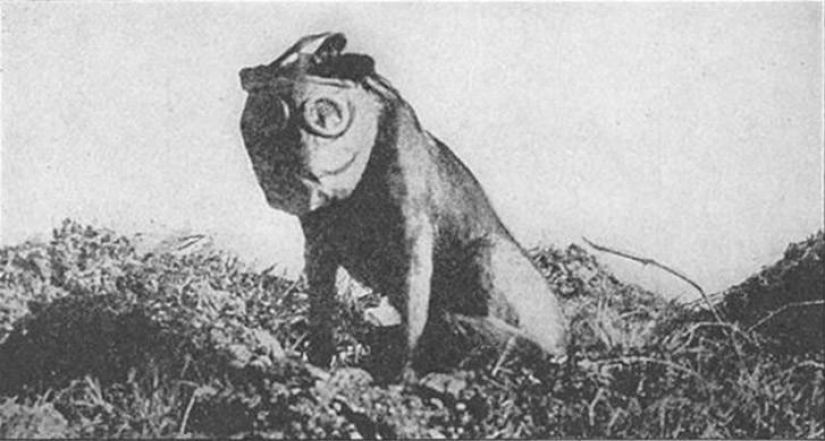
This photo shows another dog, but its appearance gives an idea of what Stubby looked like in his protective gear. As you can see, the image turned out pretty.
Clever Stubby could easily recognize the enemy by the language spoken by the person. He was able to find wounded soldiers and notify medics. Once the dog even caught a German spy prowling between the trenches of the Allied army.
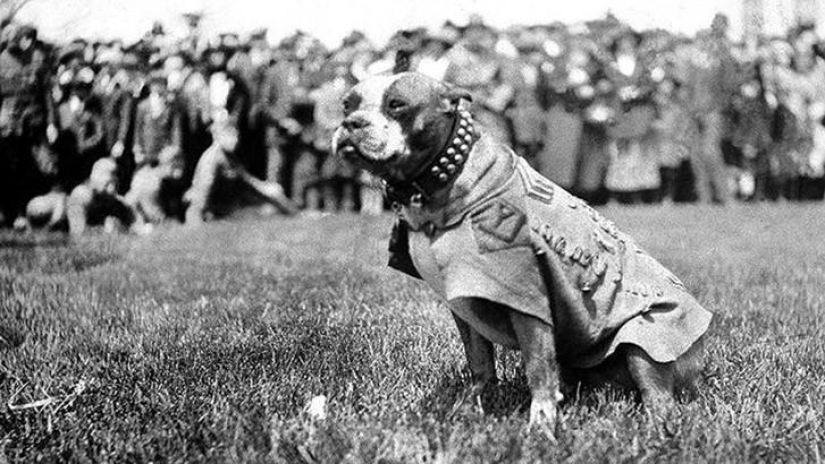
Having detained the spy, Stubby went down in history as the first dog to receive the rank of sergeant in combat. He was even awarded the Order of the Iron Cross, which he wore on his dog uniform along with the rest of the insignia.
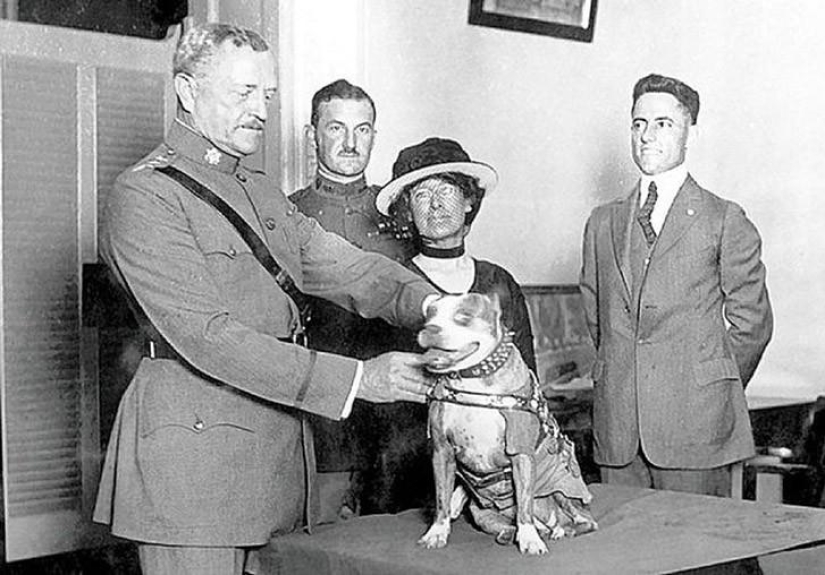
In this photo, the heroic dog receives an award from the hands of General John Pershing. The newly minted sergeant looks very solid.
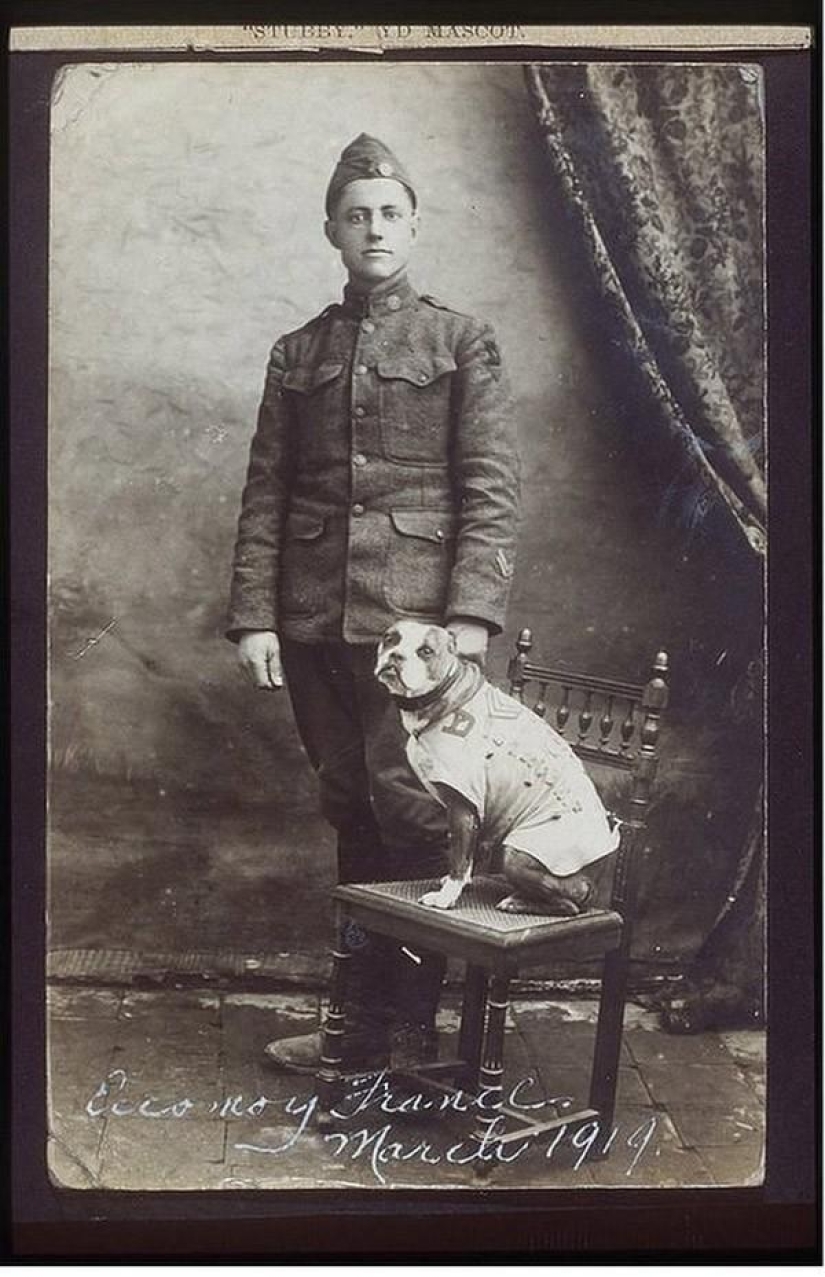
Here we can see a respected sergeant in the company of his subordinate (and at the same time — the owner), Corporal J. Robert Conroy. Yes, this is not a reservation at all: Stubby has outgrown a man in rank.
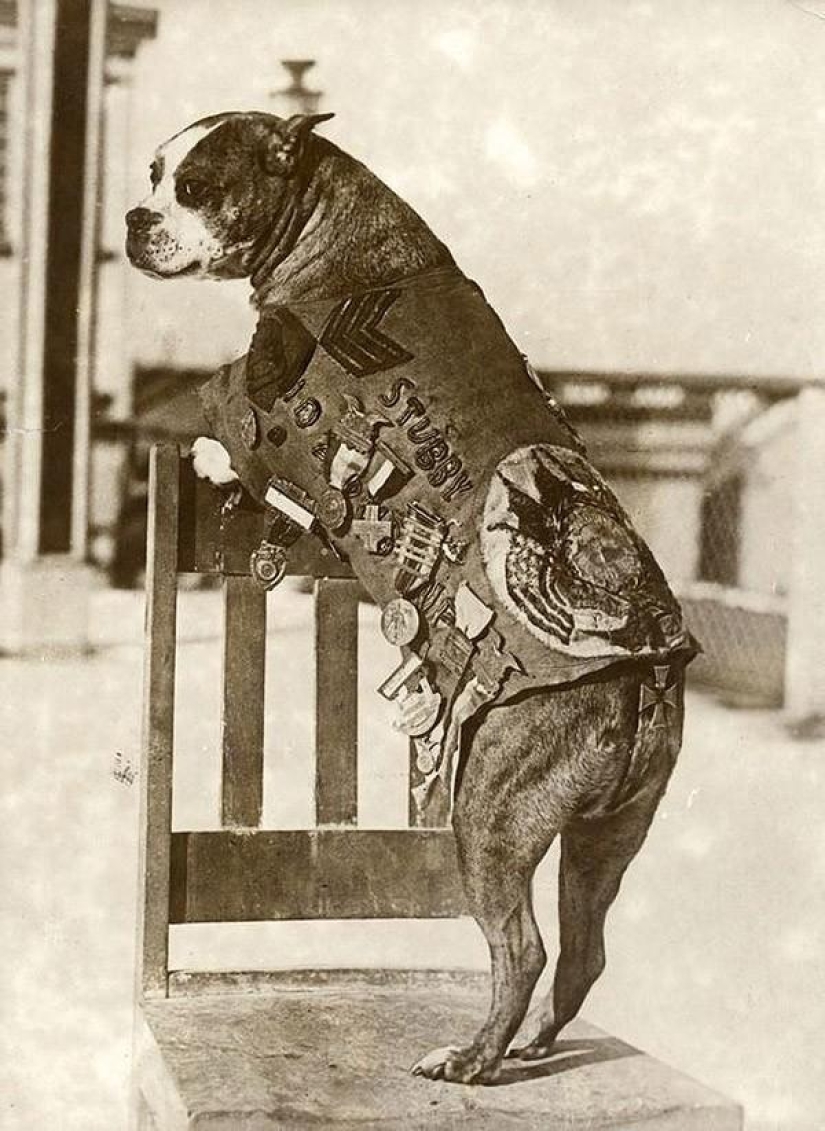
By the time the war ended, Stubby had 17 different battles on his account, in which the brave dog managed to participate. At one point, he was even seriously wounded by a grenade fragment. For the gift of a unique flair, life sometimes demands a very high price ...
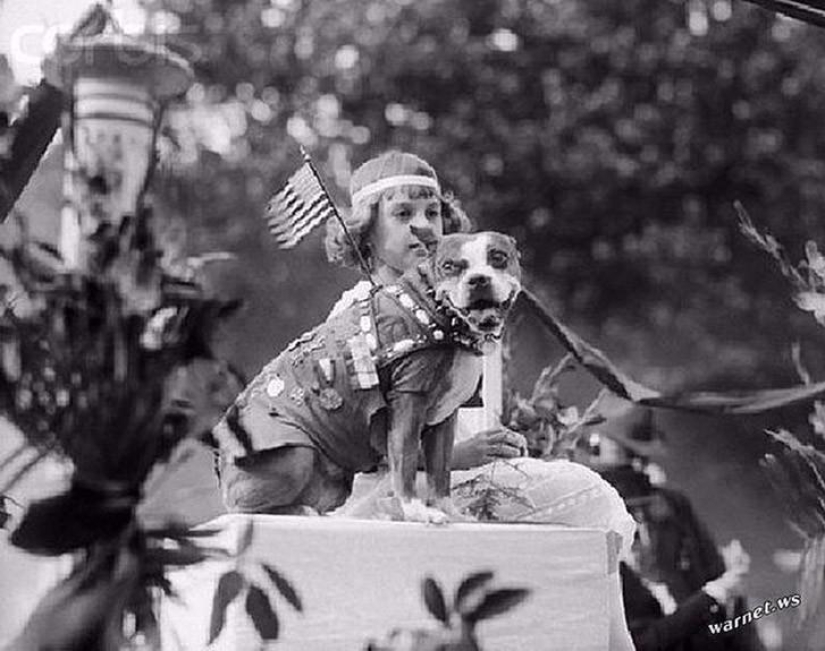
It is not surprising that shortly after the war Stubby turned into a well-known and popular person. After the armistice, while waiting in France for his departure home, the dog sergeant met with President Woodrow Wilson. As it was said about the meeting afterwards: "The two shook hands."
In 1920, Stubby personally attended a meeting of the Republican National Convention, and in 1921 he was even invited by US President Warren G. Harding to visit the White House. A few years later, Sergeant Stubby visited the presidential residence again for a meeting with Calvin Coolidge, the next leader of the country.
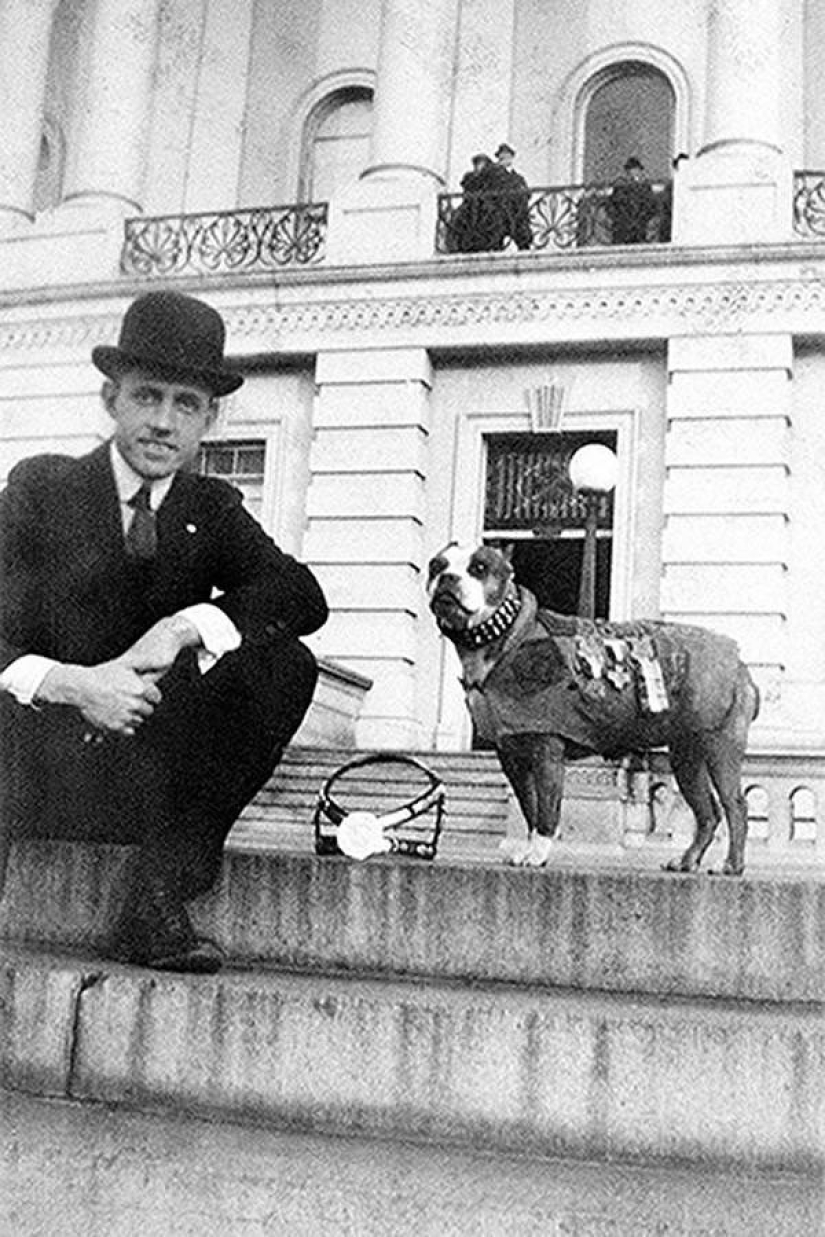
In the photo — Stubby and his master /subordinate J. Robert Conroy.
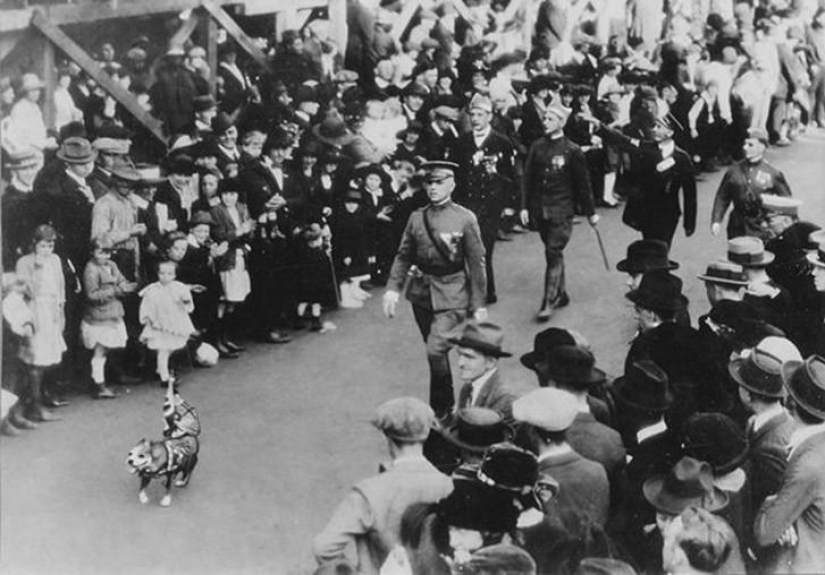
The dog returned to America as a national hero. Here he is leading a military parade.
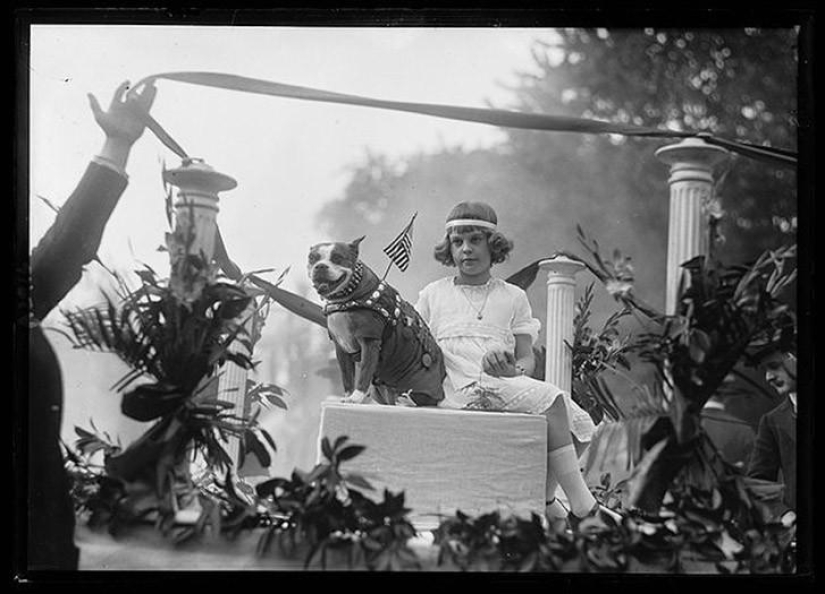
Stubby was awarded the title of a life member of the American Legion and the National Navy. When J. Robert Conroy started studying at the law faculty of Georgetown University, his dog received the status of a mascot of this institution. Currently, the mascot of the university is a certain dog named Jack.
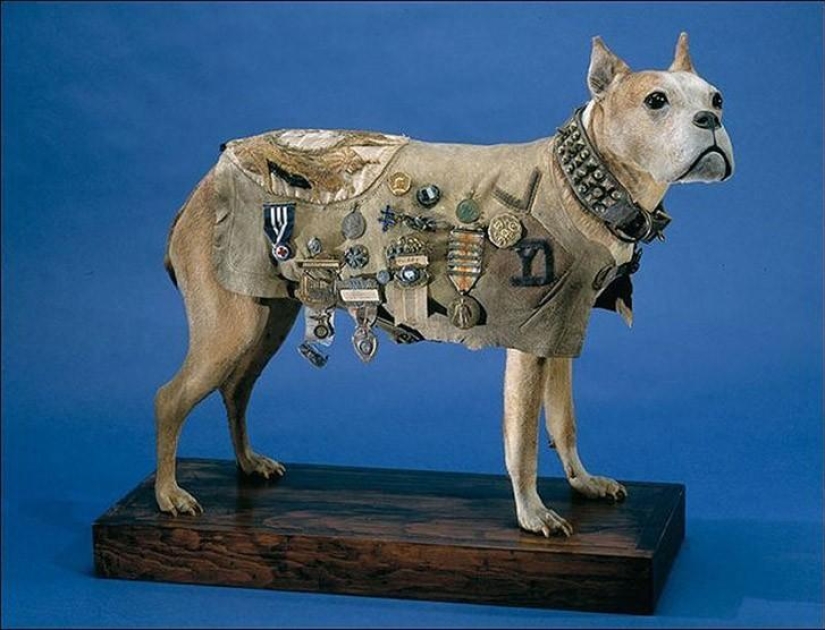
Stubby died of old age in 1926. His merits were recognized as so grandiose that the dog's body was decided to perpetuate. At the moment, Stubby is part of the exposition of the State Museum of American History.
Keywords: Hero | World war I | Dog | Dogs
Post News ArticleRecent articles

It's high time to admit that this whole hipster idea has gone too far. The concept has become so popular that even restaurants have ...

There is a perception that people only use 10% of their brain potential. But the heroes of our review, apparently, found a way to ...
Related articles

We believe that if dogs and have close relatives in the animal world, that's for sure ...seals. And even more, they are at least ...

Kings in all times is called sun and the subjects should have been familiar with his monarch in the face. But there is in history ...

Have you always felt sorry for Ross, too, when you watched the TV series "Friends"? At first glance, he is so shy, timid and, of ...

New Year's is a time to surprise and delight loved ones not only with gifts but also with a unique presentation of the holiday ...